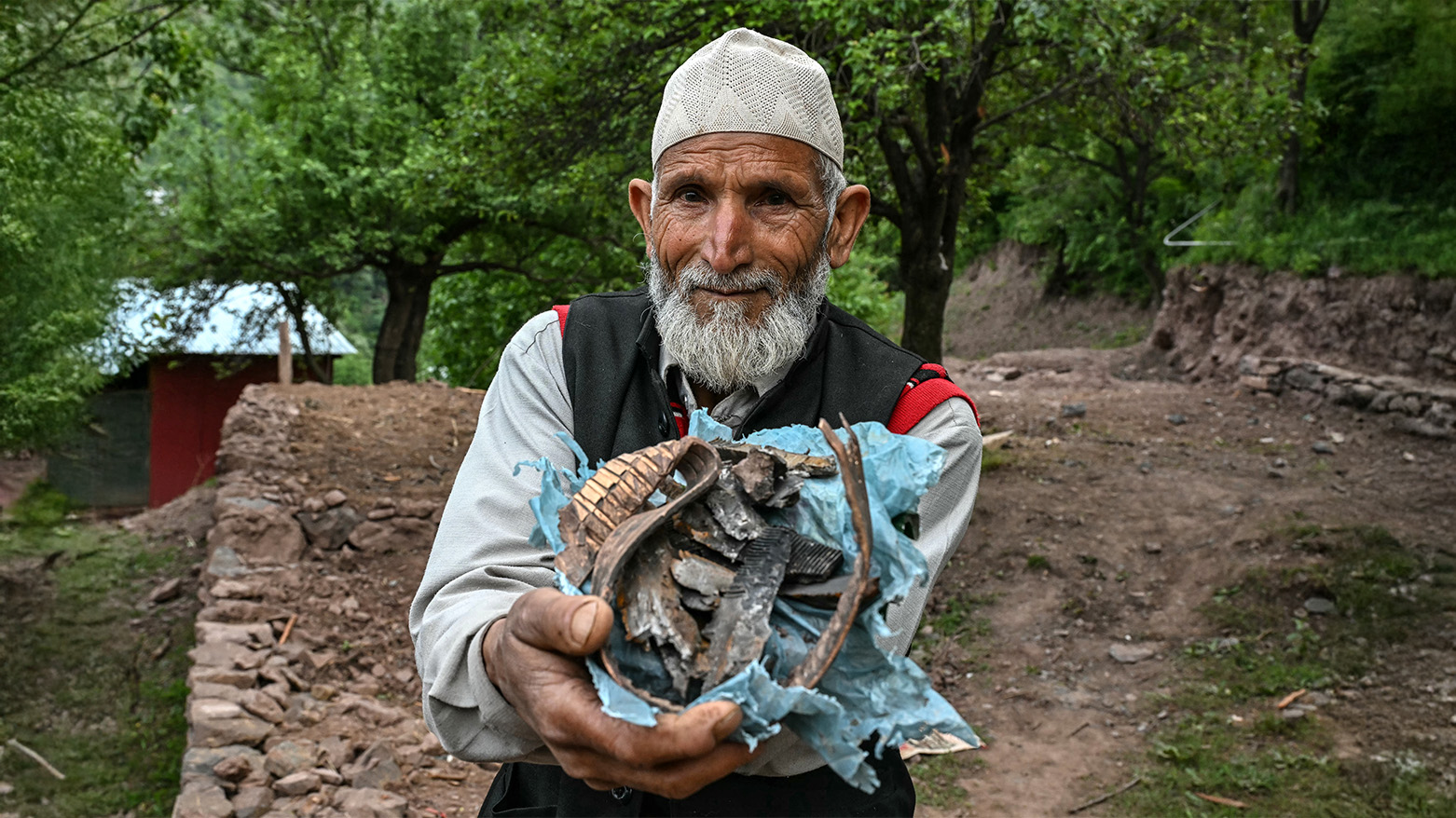India-Pakistan Escalation Deepens as Cross-Border Strikes Continue Despite Global Appeals
The conflict has expanded into drone warfare. Pakistan’s military reported downing 77 Indian drones since Wednesday night, including 29 in a single 24-hour period.

By Ahora Qadi
ERBIL (Kurdistan24) – Cross-border hostilities between India and Pakistan intensified on Friday as both sides exchanged overnight strikes, deepening fears of a wider confrontation between the two nuclear-armed neighbors. Despite mounting international calls for de-escalation, the region remains locked in its most severe military standoff in over two decades.
Pakistan’s Foreign Ministry spokesperson, Shafqat Ali Khan, accused India of recklessly dragging the two nuclear powers toward the brink of full-scale conflict. "India’s irresponsible behavior has placed both nations on the edge of a major confrontation," Khan stated.
According to Pakistani authorities, Indian artillery shelling late Thursday into Friday claimed the lives of at least five civilians in Pakistan-administered Kashmir. The attacks follow India's missile strikes launched earlier this week in response to the April 22 attack in Pahalgam, which left 26 Indian civilians dead.
New Delhi holds Islamabad responsible for backing the militant group allegedly behind the Pahalgam massacre—a claim Islamabad vehemently denies.
Drone Warfare Escalates on Both Fronts
The conflict has expanded into drone warfare. Pakistan’s military reported downing 77 Indian drones since Wednesday night, including 29 in a single 24-hour period. Some of the downed UAVs were allegedly targeting military and intelligence sites in cities such as Rawalpindi, home to Pakistan's army headquarters.
Pakistan's Foreign Minister Ishaq Dar said one drone struck a civilian area, killing a bystander and injuring four soldiers. Another drone crash-landed in a cricket stadium in Rawalpindi, prompting the relocation of a national tournament to the United Arab Emirates.
India, meanwhile, accused Pakistan of launching multiple drone and rocket attacks overnight, targeting border regions and military facilities. A civilian woman was reportedly killed in Uri by a mortar strike, while Indian officials claimed to have intercepted incoming drones and neutralized threats without sustaining military losses.
Airspace Disruptions and Regional Panic
As the situation worsened, Indian authorities shut down 24 airports across northwest India, including Punjab and Rajasthan. Schools in Indian-administered Kashmir and regions bordering Pakistan were closed indefinitely. Loud explosions rattled several districts, including Kashmir and Lahore, triggering mass displacement.
New Delhi’s Defense Ministry confirmed Pakistan launched multiple drone and missile attacks on Indian military installations Thursday night. In response, Indian forces "neutralized the threat" and reiterated that India’s operations remain "measured and non-escalatory."
Propaganda and the Battle for Narrative Control
As military strikes rage, the conflict has spilled into the information domain. India requested social media platform X to block over 8,000 accounts, including those belonging to foreign media and Pakistani figures. X complied but expressed concern over what it described as an expanding censorship campaign.
Pakistan’s Minister of Information, Attaullah Tarar, lashed out at Indian media for "disinformation and warmongering," stating, "We have only defended ourselves."
India’s Foreign Minister Subrahmanyam Jaishankar responded by asserting that New Delhi does not seek further escalation, but warned of a "very firm response" to any renewed aggression.
Diplomatic Efforts and Global Anxiety
Amid growing alarm, global actors are pressing both countries to de-escalate. U.S. Vice President JD Vance called for restraint, telling Fox News on Thursday, "We will not engage in a war that has nothing to do with us." Iranian Foreign Minister Abbas Araghchi has visited both capitals this week in a bid to mediate, declaring Iran’s readiness to assist in reducing tensions.
The International Crisis Group warned that global powers have shown a dangerous indifference to the potential consequences of renewed war between two nuclear-armed states.
Civilian Toll Mounts as Crisis Deepens
Latest figures from both governments indicate the death toll has reached at least 53 civilians—16 on the Indian side and 37 in Pakistan. The exchange of fire has also forced mass evacuations and interrupted major civilian events in both countries.
